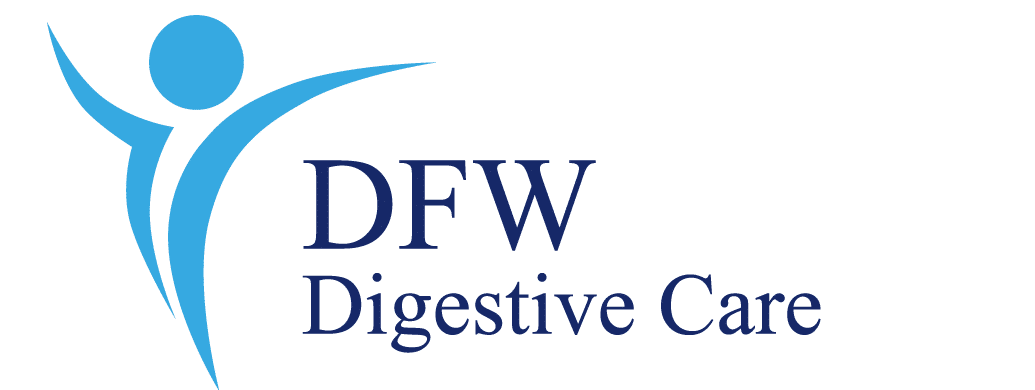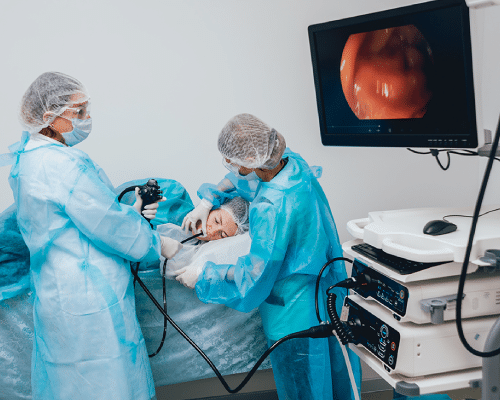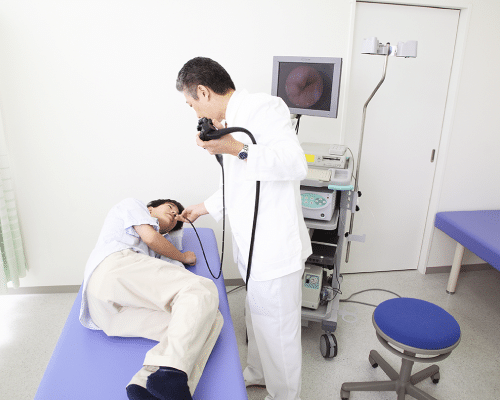Dallas Area Office
12606 Greenville Ave
Dallas, TX 75243
Mon. - Fri. 8:00 – 5:00
Sat. - Sun. By Appointment
Southlake Office
470 E State Highway 114
Southlake, TX 76092
Mon. - Fri. 8:00 – 5:00
Sat. - Sun. By Appointment
Same Day Appointments
Tel: (817) 476-8933
Same-day consultations are available. Please call to confirm availability.
EGD & Colonoscopy in DFW
These non-surgical procedures can safely examine a person’s digestive tract. We will screen you for digestive diseases and ways to improve your general health.
Digestive health issues, also know as gastritis, affects 8 out of 1,000 people, and early intervention can easily prevent long term chronic issues and pain. This is why it’s recommended that men and women over 50 schedule an endoscopic procedure to check for digestive health issues before they become serious problems.
Endoscopic Diagnosis Leads To Wellness
A patient can begin their path to wellness by getting an endoscopy, which can examine the digestive tract. An endoscope — a flexible tube with a camera and light attached to it — can help the doctor view the digestive tract. It can smoothly pass through the mouth, throat, into the esophagus, and to the small intestine. Endoscopy can help with the evaluation of the following:
- GERD (gastroesophageal reflux disease) – Typical symptoms include heartburn, indigestion, regurgitation and nausea.
- Digestive Tract Bleeding – cauterize open sores in your digestive tract.
- Cancer and Tumor Screening – Doctors can see ulceration, abnormal bumps, and masses during an endoscopy
- Inform Gastritis Treatments that prevent ulcers, abdominal pain and chronic pain issues.
- Locate Polyps or growth inside the colon and remove them
How We Can Help
Our professional physicians are experts in upper endoscopies and colonoscopies, which typically takes between 20 to 30 minutes. We use this procedure to detect various conditions, such as bleeding from an ulcer, and even polyp removal, to prevent colon cancer. We can also perform an endoscopy to determine the cause of digestive symptoms such as vomiting, nausea, gastrointestinal bleeding, difficulty swallowing, and more.
We can also perform an endoscopy to collect tissue samples to test for various diseases like inflammation, anemia, diarrhea, and the digestive system’s cancers. After completing our investigation, we can then use endoscopy for treatment:
- Widening a narrow esophagus
- Removing a foreign object
- Clipping off a polyp
- Burning a bleeding vessel (cauterizing)
At DFW Digestive Care, we want to care for your well-being. You can start looking after your body with us to address any uncomfortable signs and symptoms. We’re always one step ahead of any condition, and we do our best to keep our patients comfortable for every procedure. So make sure that you’re healthy inside and out by getting an endoscopy to ensure that everything inside your body functions as it should.
How can we help you?
Our Services
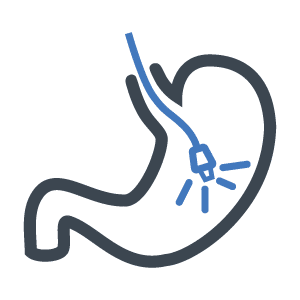
endoscopy
Endoscopic ultrasound is a test that lets your doctor look at the walls of your esophagus, stomach, and upper gastrointestinal tract. The test does not use X-rays or other radiation. The doctor uses a thin, lighted tube that bends.
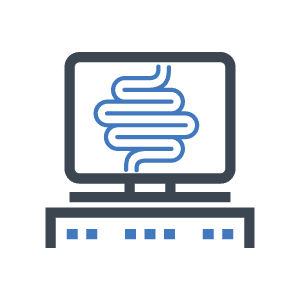
colonoscopy
Having a colonoscopy can help doctors pinpoint the possible causes behind rectal bleeding, abdominal pain, chronic diarrhea, chronic constipation, along with other intestinal problems.
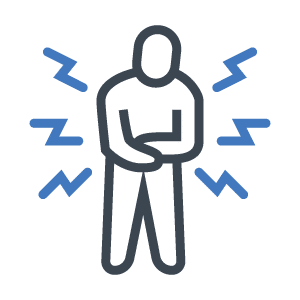
Colon Cancer Screening
If you’re over 50 or experience serious stomach pain, you should conduct regular screenings for colon cancer. Colorectal cancer is the second leading cause of death, accounting for 10 to 11% of cancer deaths overall.
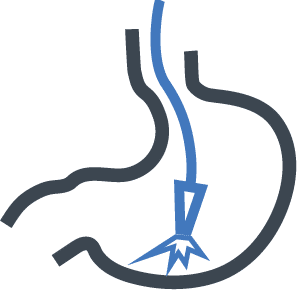
ULCER CAUTERIZATION
Gastric and duodenal ulcers are open wounds in your digestive tract and intestine tract. Ulcers can cause abdominal pain and can lead to internal hemorrhaging if not closed via non-surgical cauterization.
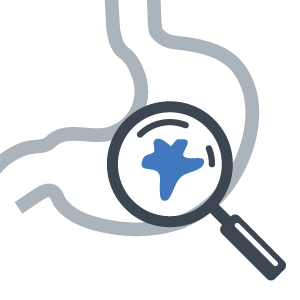
ULCER SCREENING
Having a colonoscopy can help doctors pinpoint the possible causes behind rectal bleeding, abdominal pain, chronic diarrhea, chronic constipation, along with other intestinal problems.
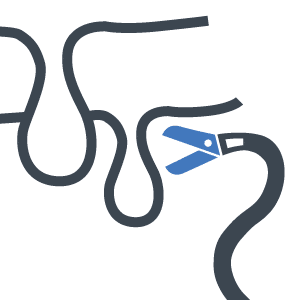
POLYP REMOVAL
If you’re over 50 or experience serious stomach pain, you should conduct regular screenings for colon cancer. Colorectal cancer is the second leading cause of death, accounting for 10 to 11% of cancer deaths overall.
What do you need to know?
Frequently Asked Questions
When to see a gastroenterologist?
Aside from being referred by your primary care doctor, you can also go directly to a gastroenterologist when you need a colon cancer screening, or you feel the following symptoms:
- Lethargy
- Loss of weight or appetite
- Vomiting
- Esophageal pain
- Excessive belching or gas
- Abdominal bloating or pain
- Acid Reflux Or Heartburn
- Dark urine
- Pale-colored stools
- Changes in bowel habits
- Diarrhea
- Hard-to-control bowel movement urges
- Leakage/underwear stains
- Rectal bleeding
What is an endoscopy?
This is a non-surgical procedure that uses an endoscope. The endoscope allows your gastroenterologist to see the insides of your digestive tract via a monitor.
That way, they can examine your digestive tract more accurately and efficiently.
What is a colonoscopy?
This is an examination to detect abnormalities or changes in your rectum or large intestines. It uses a colonoscope or a flexible tube that is inserted into your rectum. This allows your physician to see your colon’s insides because the colonoscope has a tiny video camera.
What is an EGD test?
To examine the lining of your duodenum (the upper part of your small intestine), stomach, or esophagus, you may need to undergo an EGD or esophagogastroduodenoscopy (also known as upper endoscopy).
This test also uses an endoscope that passes down your throat and along your esophagus.
That way, they can examine your digestive tract more accurately and efficiently.
How should I prepare for an upper endoscopy procedure?
You may need to do the following before an EGD:
- Set an appointment.
- Fast for about six hours before your appointment — no drinks or food.
- Get a driver to drive you home.
That way, they can examine your digestive tract more accurately and efficiently.
How long does an endoscopy procedure take?
We recommend you should be in our center for about two hours before an endoscopic procedure. For colonoscopy and EGD, you need to be sedated to make you comfortable and safe.
The test itself will only be about 30 minutes. However, you may need extra time for preoperative check-in, registration, and postoperative recovery.
Thus, the overall time you may spend in our center is about two hours.
That way, they can examine your digestive tract more accurately and efficiently.
Is my insurance acceptable?
As for Medicare, we currently do not accept it, but we accept all major insurance providers.
Before your test, we verify your benefits and eligibility. We will be happy to assist you, but you should also be aware of your insurance coverage.
Will I receive a bill after the procedure?
You may receive various statements for your bills. These include the following:
- Bill from the laboratory to analyze the specimens your physician obtain during your test
- Physician’s bill
- Bill from the center
Will I need a driver?
During an endoscopy or colonoscopy, you will receive a sedative or narcotic to help you relax during the test. Thus, after the test, you cannot drive as you may feel drowsy because of the sedative or narcotic.
Most medical facilities do not allow you to take the procedure unless you have a ride home ahead of time.
How should I fast?
Most recommend fasting the night before the procedure, while you must follow fasting six hours before the test.
Can I take regular medications before a test?
Before and after your test, we recommend you take your usual medications. However, for diabetic medications like pills or insulin, you should not take them. Other medications that are not allowed prevent clottings, such as Ticlid, Plavix, and Coumadin.
In these cases, we may have to review your medications before you undergo a test.
Is the procedure painful?
As mentioned, you will be sedated so the test will be comfortable. This means you should not feel anything during the procedure.
After the procedure, you are most likely to feel hungry, gassy, drowsy, and have a slightly dry mouth. However, these will gradually wear off.
Can I eat anything after the test?
Yes, but you should take it slow, and it is recommended to take a light meal only. We also recommend taking a nap until the effects of the sedation are completely worn off, as you will likely be drowsy for about four hours after the procedure.
Can I return to work after the test?
Yes, but it should be the following morning. You will be quite drowsy for at least four hours after the test.
How long until I see the results?
After your procedure, you can immediately know the results. Your physician will discuss the results with you and your family. We also provide a written explanation.
We will contact you once we have the results for the tissue samples because they will still undergo a lab analysis.
How long until I see the results?
After your procedure, you can immediately know the results. Your physician will discuss the results with you and your family. We also provide a written explanation.
We will contact you once we have the results for the tissue samples because they will still undergo a lab analysis.
How long until I see the results?
After your procedure, you can immediately know the results. Your physician will discuss the results with you and your family. We also provide a written explanation.
We will contact you once we have the results for the tissue samples because they will still undergo a lab analysis.
What should I do if I have other questions?
If you have more queries regarding endoscopic procedures, you can browse our page for articles related to your procedure.
You can also call us directly.
Contact us
Schedule A Consultation
We know you are busy. You can give us a call (817) 476-8933 or leave us your details and a patient care specialist we will contact you during our normal business hours.
DFW Digestive Care will never sell your contact information or send you unsolicited offers that do not pertain to our health services.
© 2021 DFW Digestive Care.
